For decades, Springfield drag queens have been in national spotlight for resilience, passion
Joe Schultz struts down into the basement of nightclub Martha's Vineyard.
Here ?— sporting six-inch pumps and a bright pink and black bodysuit ?— Schultz, 23, is known as Sofonda Coxx Mornett.
Schultz has been performing under his drag persona, Sofonda, since 2018. A graduate of Missouri State's theatre and dance department, Schultz first got up on Martha's stage with MO State Dance Company, a student dancing organization. Today, he hosts his own shows, often at Hour House, the Outland Complex's bar.
In a majority conservative community where within the last decade voters chose to strike down a city ordinance prohibiting discrimination against LGBTQIA+ Springfieldians, a vibrant drag scene has been thriving for decades. This community allows young adults like Schultz and his friends to let loose, and a national audience has taken notice.
In recent years, two Springfield drag queens have performed on "RuPaul's Drag Race," a reality competition television series where drag queens from across the country compete for the title of "America's Next Drag Superstar." Both Crystal Methyd, who performed on season 12, and Daya Betty — season 14 — finished in the top three of their seasons.
But Springfield's name was known by drag queens nationwide decades before "RuPaul's Drag Race" first aired in 2009.
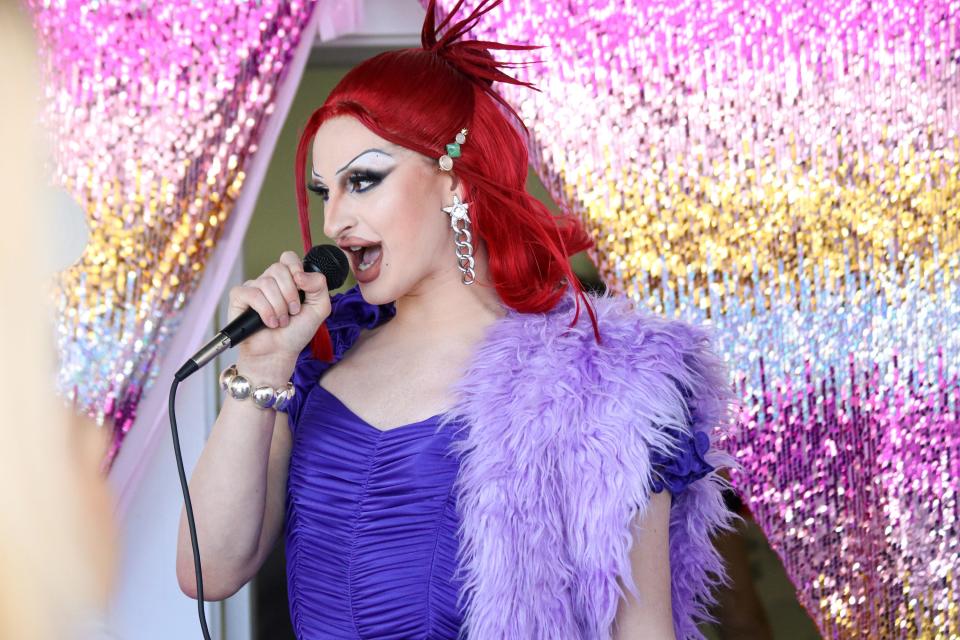
Getting Springfield drag queens on the map
Springfield is known for producing award-winning pageantry drag queens and hosting memorable pageants for the region. Pageantry drag, styled after traditional beauty pageants, includes regional, state and national competitions.
Throughout the years, over half a dozen Springfield drag queens have won the title of Miss Gay Missouri USofA, a preliminary competition for the nationwide USofA Pageant, established in 1986.
As more Springfield queens began to win the Miss Gay Missouri USofA title, the organization started holding the state-wide pageant in the Queen City. This brought more drag queens and spectators to the city. Before the prevalence of social media, this physical foot traffic helped put Springfield on the map.
While Springfield's drag queen community continues to grow and thrive, the city hasn't always provided an outwardly safe space.
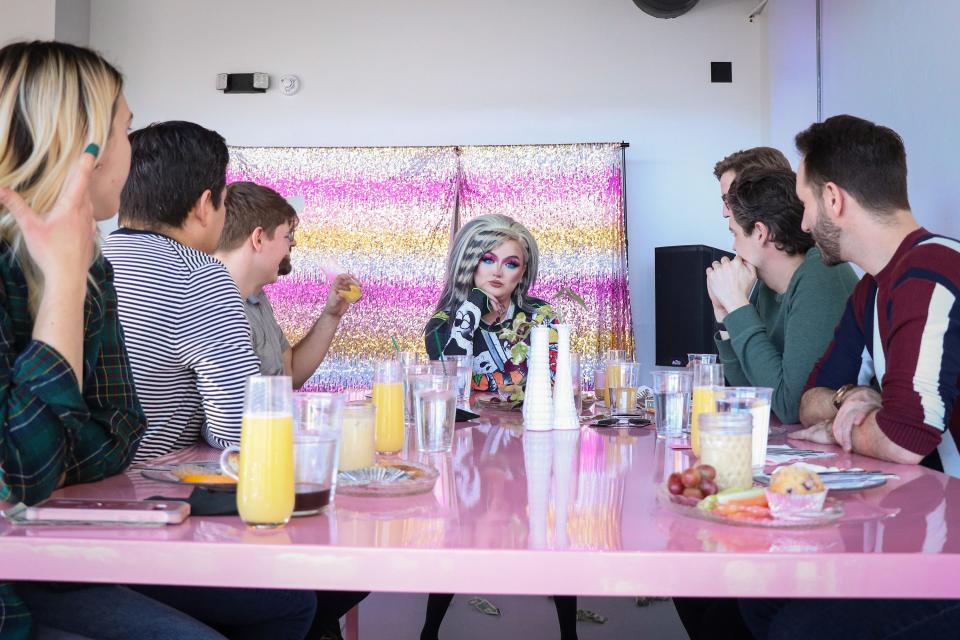
More: 'We lost people': LGBTQ community grapples with last decade's SOGI fight while wondering what's next
Decades of hardships for the community
Casandra Love, 53, began performing as a drag queen in Springfield at age 21. Her drag "birthday" is July 14, 1992, the first time she got into drag.
"I had put on my very first dress, very first wig, very first makeup," Love recalled. "I went to the top of a parking garage ... and watched fireworks from the top. That's when I caught it. They call it 'the bug.' You just love it so much you don't ever want to give it up."
Love requested that the News-Leader not use her real name for privacy purposes. A handful of drag queens interviewed for this story made the same request to ensure the safety of their private lives, as not everyone is accepting of the practice.
Before moving to Springfield, Love lived in a strict Christian home in Colorado. Upon arriving to Springfield, making friends who supported her interests, she felt like she could finally accept herself. But that didn't mean everyone did.
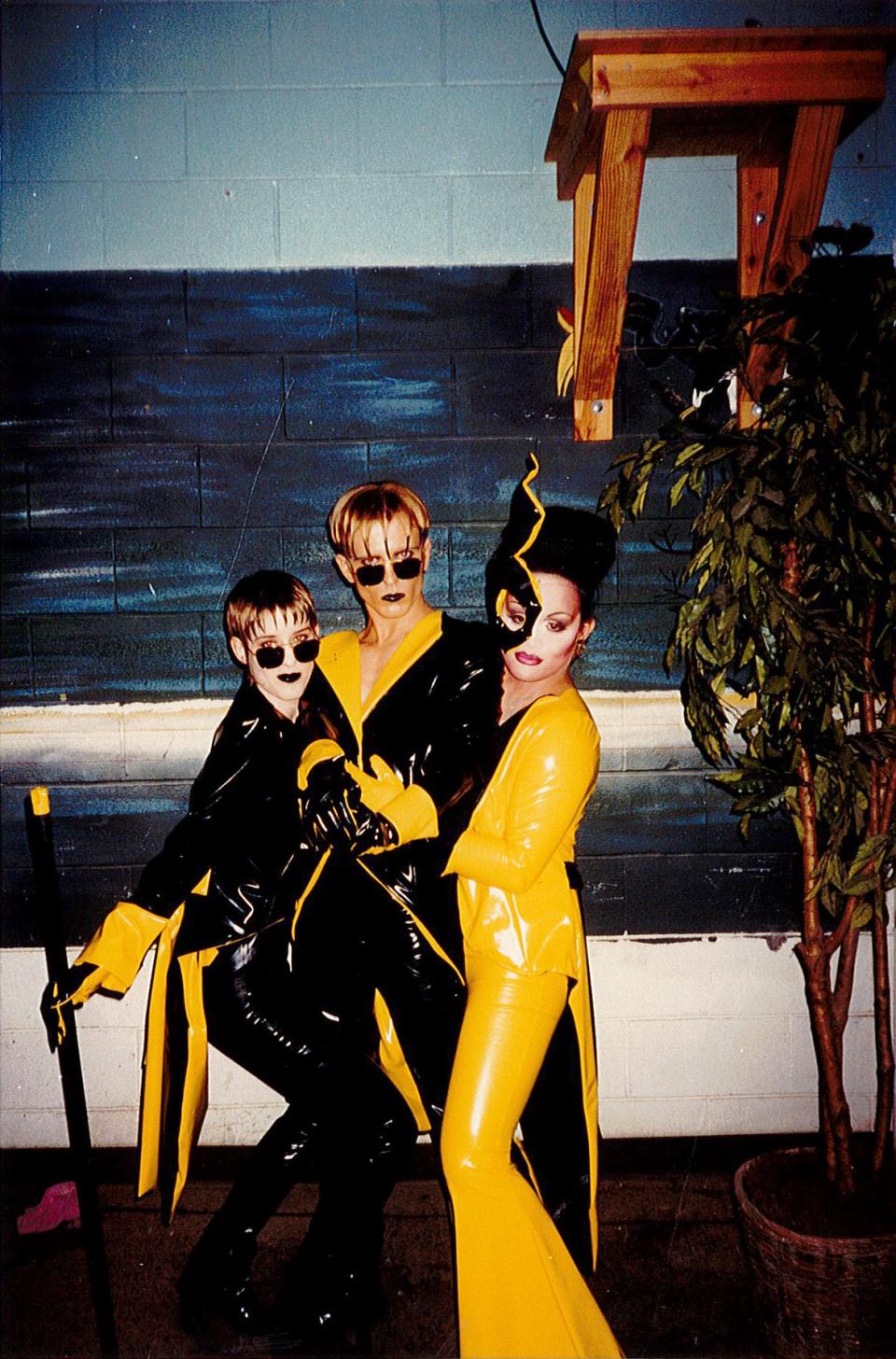
"Back in that time we were beat up, we were tortured by the straight community here," Love said. "It was very 'anti-different.' In order to be public, we were putting everything at risk, (including) our jobs. We were one step away from the street. A lot of us couldn't handle it, so we turned to drugs and alcohol. It was a difficult life."
Love said she lost many drag friends in the '90s, including her mentor Paul Robert Penninger, who performed as Bette Davis. Many drag queens who performed throughout the '80-90s remember the essence of Bette Davis.
Penninger, originally from Carbondale, Illinois, was only 34 years old when he died on May 8, 2000, due to complications of liver disease. He was the show director of several nightclubs in Springfield, including the Collosem Complex, which is no longer open, and Martha's. He also served on the national staff of the USofA Pageants.
Ian Shelton, who performs as Madame Phoenix, described Bette Davis as the "ambassador of drag" in Springfield.
Shelton began performing in 1995 and said he remembers passersby throwing bottles and yelling obscenities at drag queens in front of Martha's. He said drag queens would often run from their vehicles into Martha's to avoid attacks.
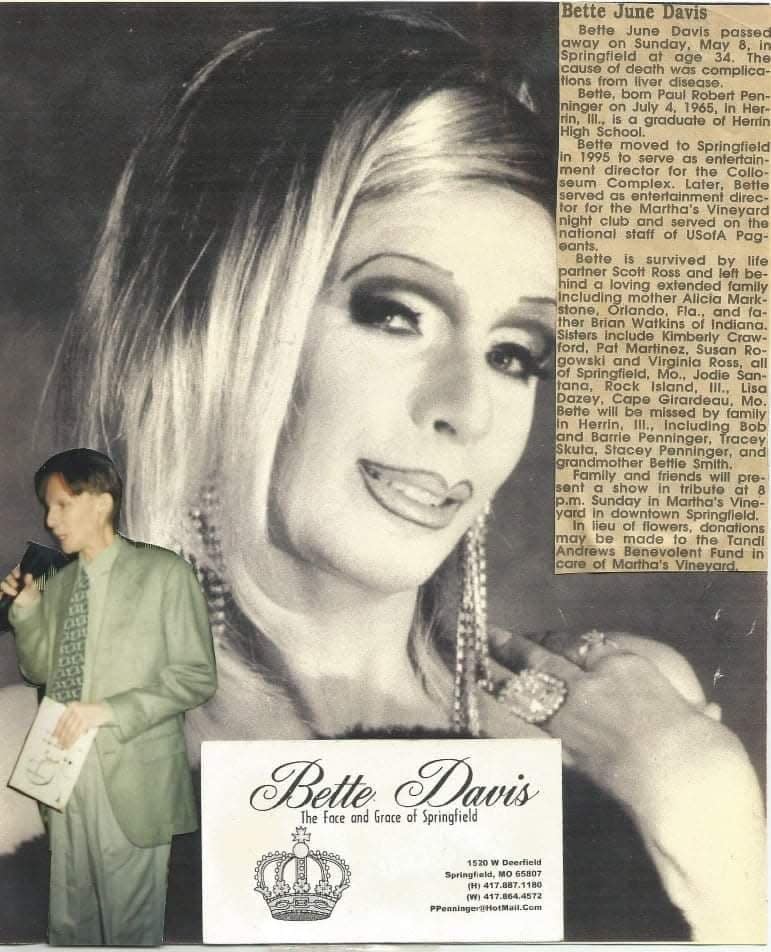
Now, more 25 years later, violence still occurs outside of Martha's. In summer 2021, the parking garage located at 284 W. Olive St., across from the bar, was the site of several verbal and physical attacks, according to KY3 reporting. The Springfield Police Department launched an investigation last summer.
According to SPD Public Affairs Officer Cris Swaters, there was not one specific group responsible for the incidents and it's not clear whether victims were targeted for being members of the LGBTQIA+ community. Some of the suspects were believed to be juveniles who were never identified.
However, one person was charged with unlawful use of a weapon for discharging a firearm at the car park during the time of the incidents.
Schultz, who regularly performed at Martha's at the time, said he saw a positive side effect of the violence before he was even aware of what was going on.
"There were groups of people standing in the parking lot with glow sticks on, and they were like, 'Yeah, we're just here to help support people to walk them to their cars, to be extra witnesses,'" Schultz recalled. "That was really reassuring because those were just community members who decided to step up and try and keep the drag performers safe."
Providing safe spaces for members of the LGBTQIA+ community in Springfield has been a topic of discussion over recent years, especially with the introduction of the Sexual Orientation and Gender Identity ordinance, or SOGI.
First passed by City Council in 2014, SOGI prohibited discrimination in employment, housing and public accommodations based on an individual's sexual orientation or gender identity. This ordinance provided legal recourse for gay and trans Springfield residents who believed they were being discriminated against.
But by the April 2015 election, enough petition signatures against the ordinance were gathered by local evangelicals leaders that the issue was put on the ballot. These leaders argued that the ordinance would infringe on the right of Christians.
In a narrow decision, Springfield voters chose to repeal the ordinance less than a year after it was first passed.
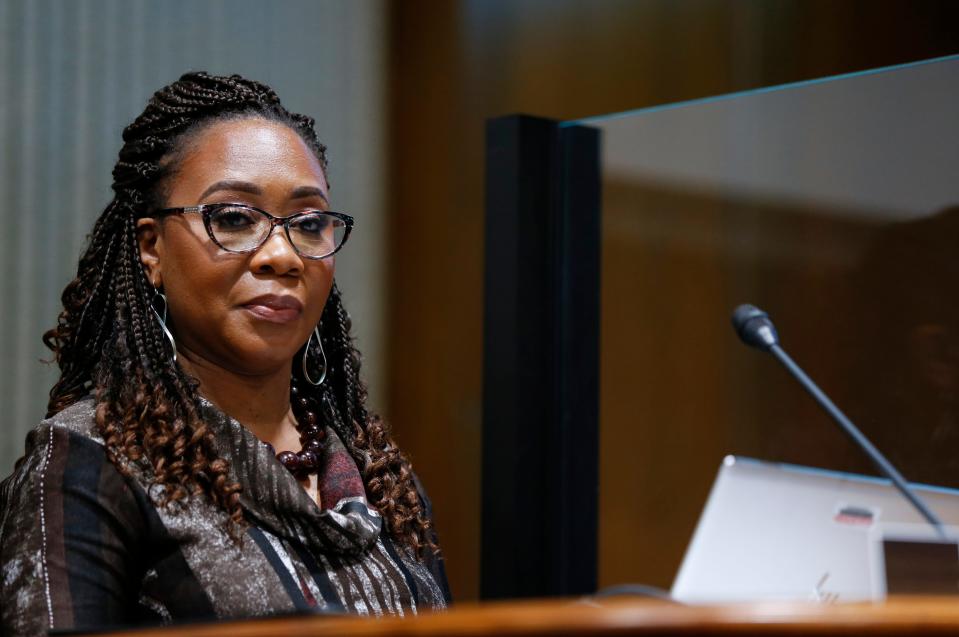
Nearly 10 years later, City Council could possibly revisit the ordinance, with the addition of council member Monica Horton, who told the News-Leader in early June that she wishes to prohibit all housing discrimination.
Just as painful are popular misconceptions about drag queens, said Travis Jackson, who has performed as Katriana Dupree for 13 years.
"We're not the weird gay guy in the corner, the pedophile or whatever they want to call it," Jackson said. "We are simply entertainers. That's how I look at it. I'm just an entertainer. I have no desire to transition. I have trans brothers and sisters that I love, but that's not where I want to go. I think that's a common misconception by other people: that we want to immediately change our gender. That's just not true."
But Jackson said he realizes that media like "RuPaul's Drag Race" is destigmatizing drag culture, helping others understand it better.
'Pressure makes diamonds'
Jimmy Anti, 22, said they believe Springfield's location has ultimately benefited the drag queen community.
Springfield is located in the Bible Belt, which refers to a religiously conservative region in the South and Midwest of the United States.
"We are surrounded by ... a sea of people who aren't necessarily supportive or embracing of queer lifestyles, let alone a queer art form," Anti said. "There's almost a need to prove ... we are talented. I think it's just like, pressure makes diamonds. I think that's why there are so many talented people and there continues to be such amazing (drag) that comes out of Springfield."
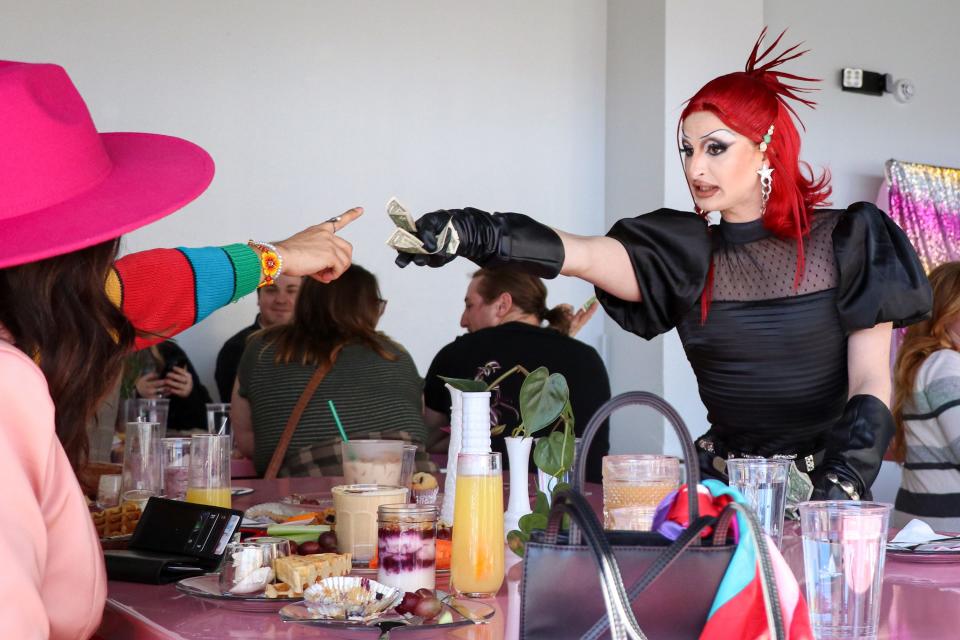
Daya Betty, who competed on the latest season of "RuPaul's Drag Race" and is now traveling globally, called Springfield her "drag home," no matter where she is performing.
Betty said though the community has grown and gained more recognition, younger queens should remember those who paved the way before them.
"A lot of people will teach themselves a lot of things about drag, and drag is becoming more and more into the mainstream, which is awesome," Betty said. "But there's a huge history behind drag. Drag wasn't always on the cover of magazines. I think learning ... from people who have done it way longer than us (younger queens) and still not let certain traditions die, is very important."
Mentorship within the drag community is essential to Betty.
More: From Vanilla Ice to monster trucks, what you need to know about the 86th Ozark Empire Fair
Family is priority in the drag queen community
When getting started in Springfield, one of Betty's mentors was Mia Gunn Mornett — drag name of James Konz — who has been performing for nearly 10 years.
"When I think of drag queen, I think of Mia Gunn," Betty said. "She understands the ins and out of drag and where it came from."
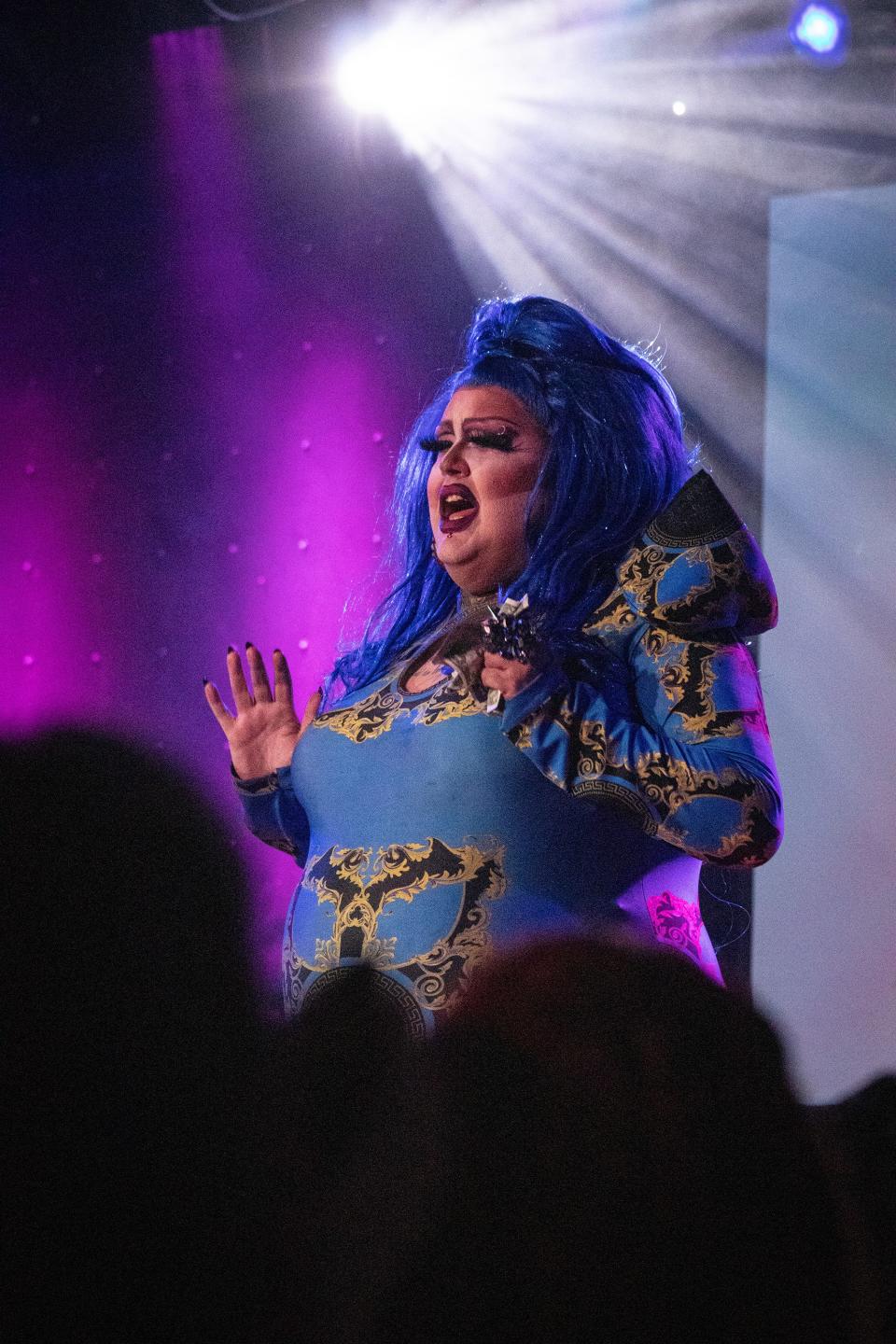
Konz, a regular entertainer at Martha's, is a part of the Mornett drag family in Springfield.
Drag families are structured like genealogical families. Drag mothers adopt younger queens who become their "children." Drag mothers help their children learn the ins and outs of drag.
Konz's drag "grandmother" is Devion Markstone Mornett, the drag name of Reginald Louis Webb II, head of the Mornett family. Webb said he has about 22 performing children, eight non-performing children (those who no longer perform as drag queens) and 10 grandchildren.
"I never thought I would have this huge dynasty of children," Webb said. "The longer I did drag, became associated with the girls, was show directing ... the more I just wanted to mother and teach and have a legacy."
As they help each other, Springfield drag queens are known for reaching out beyond their own community.
"We are predominate in fundraising," Jackson said. "If something happens in the city, whether it's tragedy or someone just is going through and needs help, we've been known to be the first ones to be called to throw a fundraiser together and help out where we can."
Today, several drag-centric fundraisers are held throughout the city. Drag queen bingo is a popular one, raising money for organizations like The GLO Center, Harmony House, Eden Animal Haven Cat Sanctuary and Rare Breed over the years.
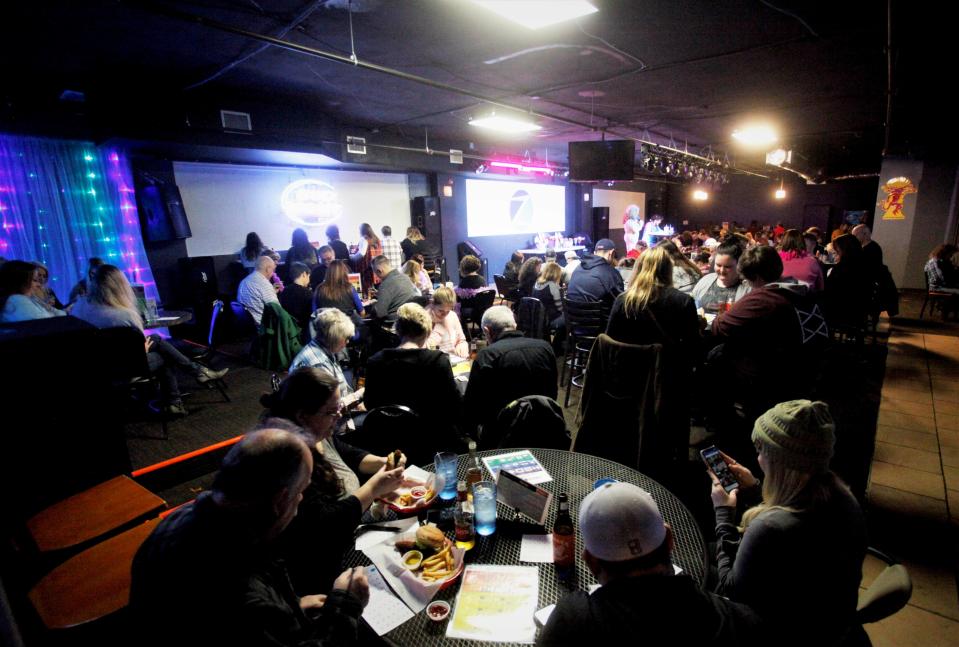
In 2018, Drag Queen Charity Bingo, a former fundraising event for local nonprofits held at Fuzion Night Club — now closed — raised $15,000, according to previous News-Leader reporting.
'We're not going backwards. We're not going away.'
The atmosphere for Springfield's drag community has evolved a lot over the years. Jackson said he remembers a time when his personal motto was to only be seen in drag when the street lights came on.
As events like drag bingo and drag brunch become increasingly popular, people are becoming more understanding.
Jackson said his own grandparents, who were skeptical about drag when he first started, have attended many of his pageants, cheering him on from the front row.
"I used to settle for the word tolerance, and now I don't," he said. "My thought process was always like, 'Well, if you tolerate it, then I'm okay with it.' But now I don't think that way. I'm like, 'Listen, I'm going to be here, regardless if you tolerate me or not, so you might as well get used to this.' We're not going backwards. We're not going away."
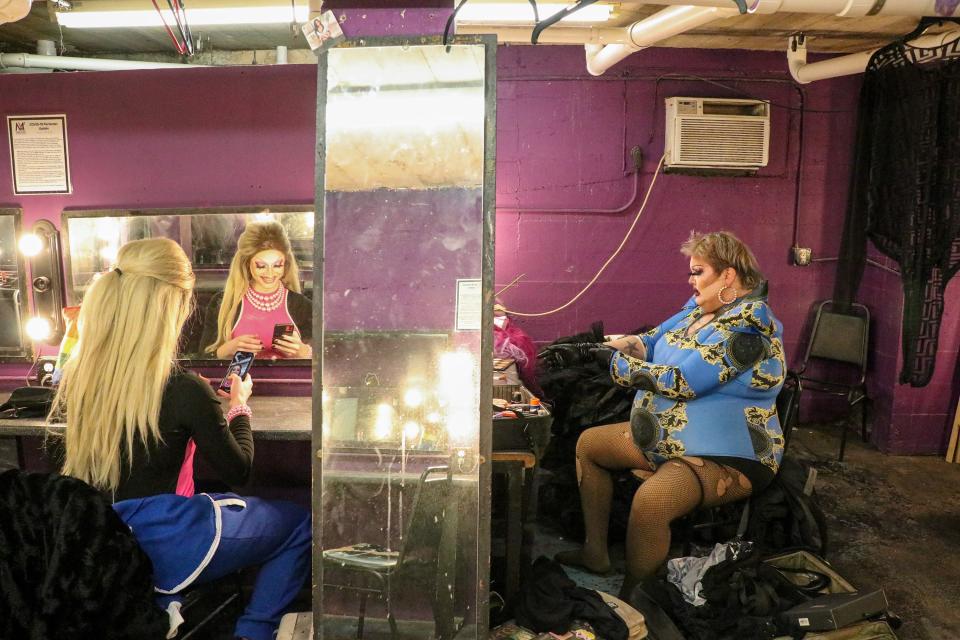
For drag queens like Love, who only make occasional appearances on stage, watching the global acceptance of drag has been gratifying.
"Now ... (drag queens) just walk in, do a show and make hundreds of dollars," Love said. "I'm happy for that. That means all of the work I did, setting the stage, priming the pump for an art form that I love, it made it all worth it."
Earlier this month, Mix Ultralounge hosted a "Springfield Legends" drag show, with performances from queens like Love, Shelton and Jackson. The bar was packed shoulder to shoulder, with some guests standing atop the pool table to fit in.
More: As community copes with Dobbs decision, GLO Center and mental health experts want to help
Where to watch drag shows in Springfield
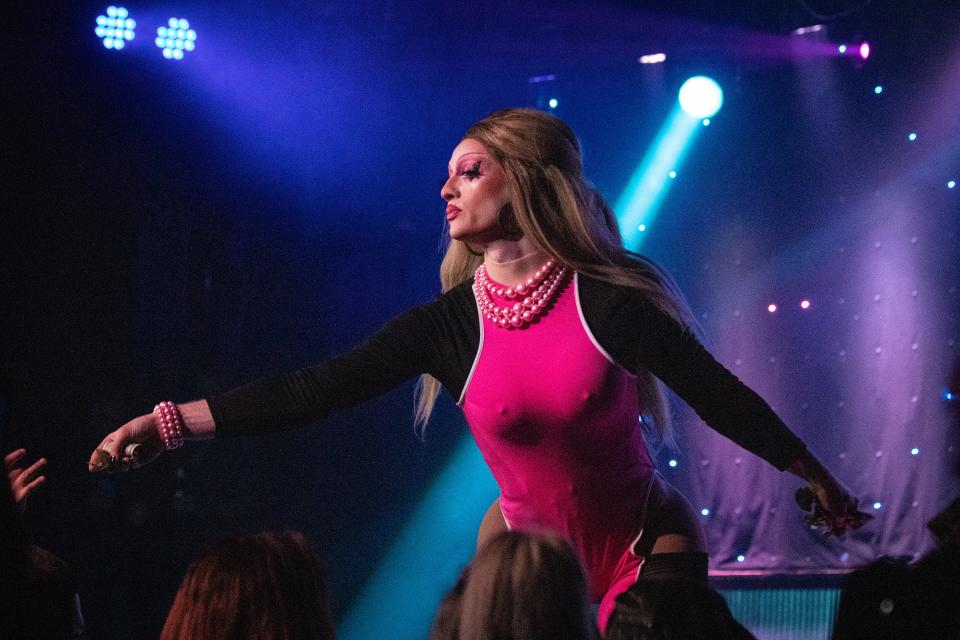
There are several nightclubs, bars, restaurants and other businesses that frequently host drag shows in Springfield.
Martha's Vineyard at 219 W. Olive St.
Martha's hosts drag shows several nights throughout the week, including karaoke on Mondays, comedy on Tuesdays and drag performances on Fridays and Saturdays. For an updated list of events, visit Marthas' website at marthasvineyardmo.com/events-list/.
Mix Ultralounge at 1221 E. St. Louis St.
Similarly, Mix hosts drag shows nearly every night of the week. Karaoke is Mondays and Wednesdays, Mix's Hey Gurl, Hey show is Tuesdays, free pool is available on Wednesdays and "RuPaul's Drag Race" watch parties are dedicated to Fridays. For an updated list of events, visit Mix's Facebook page at facebook.com/springfieldmix.
Hour House at 326 South Ave.
At Hour House, drag shows are typically held on the weekends. For an updated list of events, visit Hour House's Facebook page at facebook.com/outland.bar/.
Springfield Brewing Company's The Cellar at 507 W. Walnut St.
About once a month SBC's The Cellar hosts family-friendly drag brunches, including a brunch buffet, drag show, and meet and greet opportunities. Visit The Cellar's online calendar for updates at thecellar.springfieldbrewingco.com/the-cellar-events/.
Greta Cross is the trending topics reporter for the Springfield News-Leader. Follow her on Twitter and Instagram @gretacrossphoto. Story idea? Email her at [email protected]
This article originally appeared on Springfield News-Leader: Here's why Springfield's drag community is in the national spotlight
